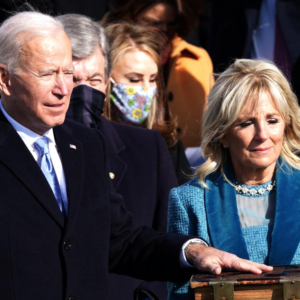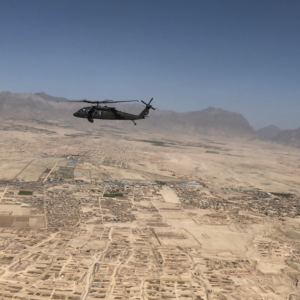With the anticipated date for the US withdrawal from Afghanistan coming closer and its increasing entanglement in dealing with the threat of ISIS, another glitch in Pakistan-US relations doesn’t seem totally improbable. The recent release of a Pentagon report accusing Pakistan of harboring militants casts a serious blow to the already confused state of relations, in spite of strenuous efforts on the part of the strategic dialogue between the two countries.
The US-led war on terror started as a direct reaction to the tragic incident of 9/11 and Pakistan, being the direct neighbor of the landlocked Afghanistan, was put in a conundrum because it was to decide whether it is up for the war as an ally or against it. The rational choice by General Pervaiz Musharraf was to affirm Pakistan’s support of the US and the allied force and launch a war to wipe out militants from Afghanistan.
To look into how the phenomenon of Talibanisation boiled up to such a level to pose a global threat, we would need to trace its roots back to the end of the Cold War. Islamic militant discourse and strategy emerged during the Soviet invasion of Afghanistan in the 1980s and the world’s reaction to aid militants to fight that war. Islamic militants got a massive amount of support from the West and the Middle East to fight the Soviet threat. They triumphed and accomplished their mission by expelling the Soviet forces in the late ‘80s, and the result was the dismantlement of the Soviet Union in the early 1990s. Once the job was done, the whole world turned its back on Afghanistan and left it unconsolidated. Taliban militants filled the gap and came into power, maintaining a stringent rule in the country for a decade.
Afghanistan again caught the world’s attention when 9/11 happened. By then, the Taliban regime had proliferated in Afghanistan, and it needed profound military power and political will to fix the mess and complete the undone job of consolidation.
Although Pakistan had entered into alliance with the United States as a ‘frontline ally’ in the war on terror, it needed to evolve its military and political strategy to fit the changing global order. Lack of quick capacity to seal its 2250 km porous border with Afghanistan and weak writ of the state on tribal areas let a huge influx of militants from Afghanistan into the bordering regions of Pakistan to seek refuge from the US attacks. Since then, they continued strengthening their position in Pakistan and even established local franchises like Tehreek-e-Taliban Pakistan (TTP).
The government of Pakistan has been cooperating with the United States by sharing intelligence, handing over suspected militants to the US, and providing logistical support by offering land routes to transfer fuel and supplies to the US bases in Afghanistan. Although Pakistan and the United States have been in a reluctant but required cooperation with each other since the very beginning of this war, the two countries could never eliminate the deficit of trust persistent between their military and political outfits. The divergence of opinion on issues like drone attacks has led to allegations of not fulfilling the duties of being an ally. In spite of continued repudiation from Pakistan of drone attacks, the United States has used drones as a strategic tool to counter terrorism without corroborating evidence of their effectiveness. A recent report on the CIA’s drone campaign in Pakistan indicates that over 2,300 people were killed by US drones, with only 704 of those dead people actually named and identified. Statistics released by the UK Bureau of Investigative Journalism pose a question on the efficacy of these drone strikes because they say that less than 4% of the drone victims were identified as members of Al-Qaeda, while the majority were children, women, the elderly, and other civilians who happened to be at the drone site at the wrong time.
The resulting tension between Pakistan and Afghanistan about lack of support in controlling attacks from one territory to the other is a powerful signal of how hard it will be for US forces to withdraw from the region as planned by the end of this year without risking future conflict.
No army in the world wants to engage in domestic counter-insurgency operations, pitching its gun power against its misdirected countrymen who for whatever inappropriate motives may choose to turn their weapons on their compatriots and the armed forces. Pakistan has undertaken a challenging and painful counter-insurgency campaign to defeat who want to implement their detestable agenda in Pakistan and elsewhere. Pakistan has successfully cleared Swat and South Waziristan in the previous years and the most recent operation, ‘Zarb-e-Azab’, was launched this June to clear militant hideouts in North Waziristan, one of the seven tribal agencies. Since June, over a thousand militants have been killed in the operation in an effort to wean locals from the clutches of terrorism. Pakistan’s army has lost roughly twice as many soldiers in the conflict with Taliban fighters as the US has.
This fight against terrorism has put a great toll on Pakistan with resultant issues of poverty, displacement, health, education, and economic insecurity. This turbulence has left millions of Pakistanis displaced from their homes. Pakistan is handling the Internally Displaced People (IDPs), whose number has reached over one million as a result of the recent operation.
With the increasing global context of the problem, Uzbek and Chechen fighters threatening Russia and Central Asia, and Uighurs threatening China, it has become more vital for the world community to support Pakistan in its efforts rather than accusing itThe threat is serious because Uzbek and Chechen attackers are traced in attacks in Pakistan, which testifies to how horrific this phenomenon is given the huge influx of fighters from around the globe to back ISIS in Syria and Iraq.
A lot more needs to be done by Pakistan to ensure that no foreign terrorist enters its territory and all the terrorist outfits found in the country are countered effectively, but it is a grim task which is underway. It is not an easy task to single out militants, who include locals who resorted to militancy as a result of various factors including poverty, lack of tolerance, unemployment, and inequality. It is an uphill task to deal with the root causes of extremism in Pakistan and it will take a long time to fix these problems with resources on one hand while countering terrorism with force on the other hand.
The whole world community needs to appreciate the sacrifices Pakistan has made during the war on terror. Pakistan has suffered a loss of $102.51 billion in direct and indirect economic cost during the war over the last thirteen years. Since 2001, Pakistan, a nation of 182 million, has been fighting for the future of the world’s 7 billion, because a Pakistan in turmoil has much greater implications than just a country in chaos. Historical ups and downs of the volatile relationship and the strategic significance of mutual coordination between the US and Pakistan testify to the fact that mutual cooperation, amid the backdrop of outspreading extremism, is more in the interest of both countries now than ever before. In such a delicate relationship, such accusations of Pakistan and a strategic tilt towards India might cause a damaging crack in the US-Pakistan relationship. If this state of mistrust prevails, it will become even more difficult to unwind the widening gulf between the two states in the coming years.





